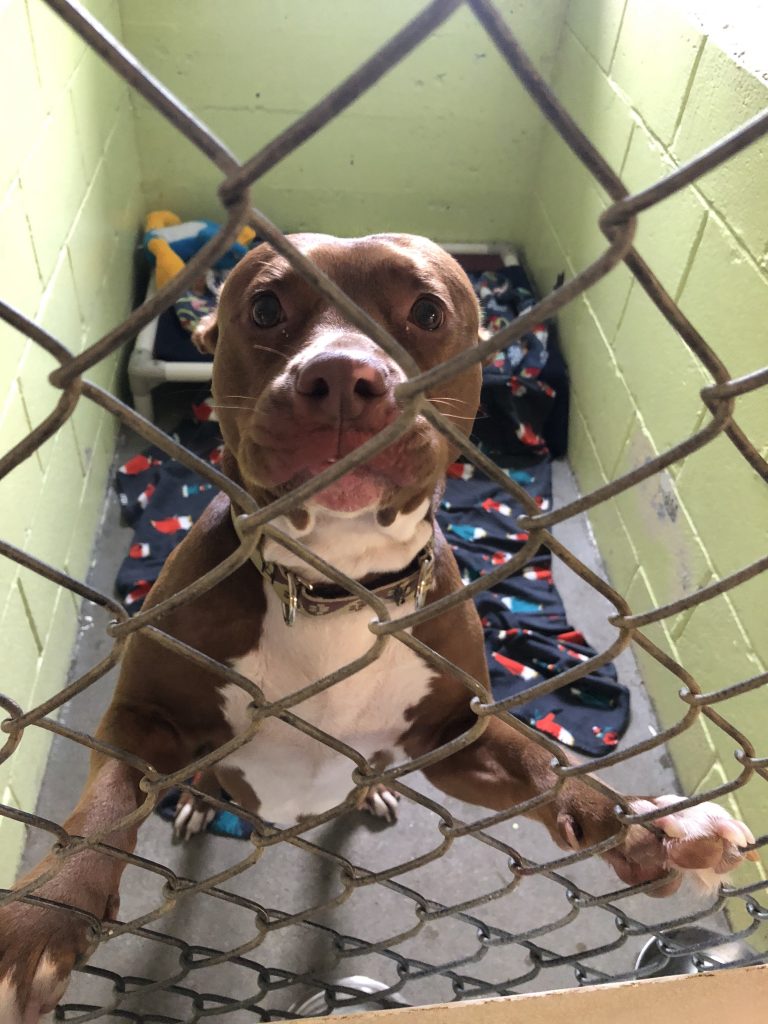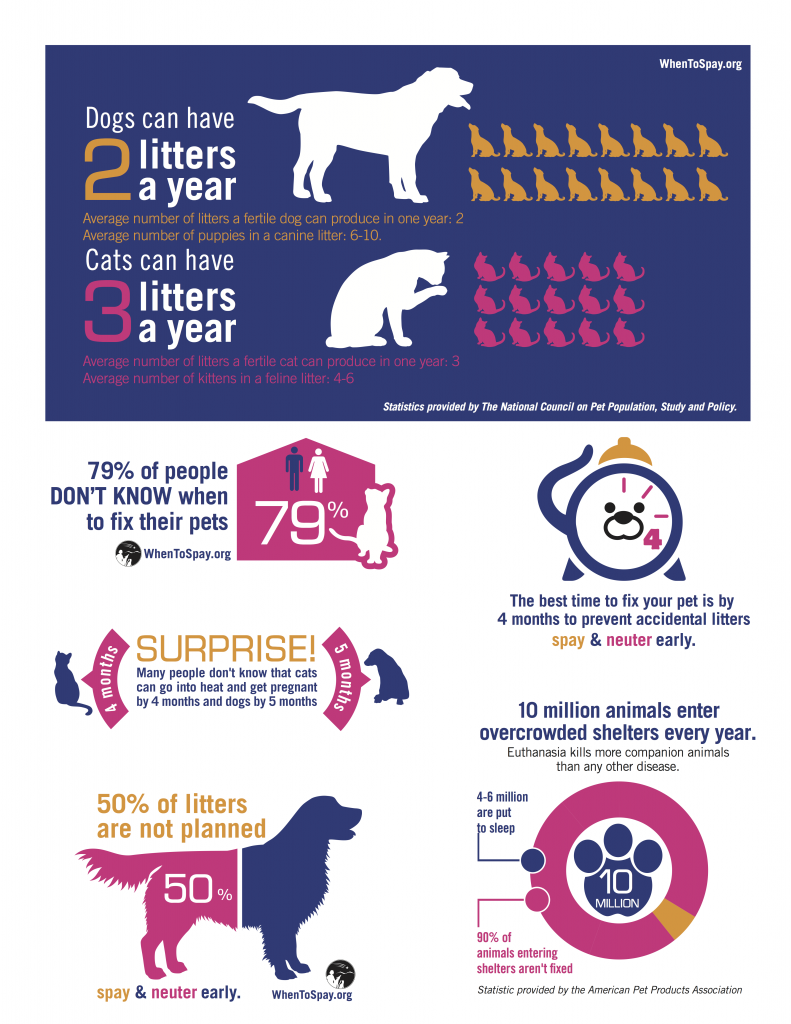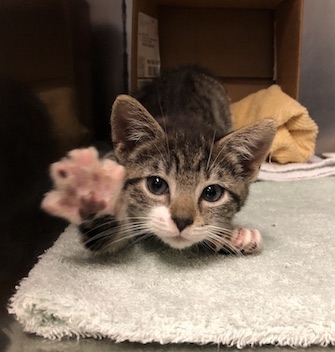Though spaying and neutering pets may seem like common practice in our society, it’s still not as comprehensive as it could be. Many people still choose not to spay or neuter their pets, despite the proven benefits. In honor of Spay/Neuter Awareness Month and World Spay Day, we’ve compiled a list of reasons to get your pet spayed or neutered.
Save Lives

By spaying or neutering your pet, you guarantee that they will not produce an accidental litter. Approximately 50% of pet litters are unplanned, and many of those unexpected offspring end up in shelters. Due to overcrowding, millions of animals are euthanized every year in shelters across the country. When you spay or neuter your pet, you can guarantee that you will not be contributing to the issue of animal overpopulation.
Even if you keep your pet indoors most of the time, and limit their interactions with the opposite sex, you still cannot be sure that your unaltered pet will not create a litter. Pets that are unaltered (aka not spayed or neutered) tend to roam because of their urge to mate, and may be more likely to run away or get loose. The only way to be 100% sure your pet will not become a parent of an unplanned litter is to have them fixed.
As spay and neuter rates increase, euthanasia rates in shelters decrease. By getting them fixed, you will keep your furry friend from contributing to unnecessary animal overpopulation and the euthanasia of shelter animals.
For Their Health
Studies show that altered pets not only stay healthier than unaltered ones, they also tend to live longer. Spaying or neutering your pet eliminates or reduces the risk of them contracting certain types of cancer and infections. Spaying female pets significantly reduces their risk of developing breast cancer, and eliminates the chance of developing uterine cancer or getting a fatal uterine infection called pyometra. Neutered male pets have a significantly reduced risk of developing prostate cancer, as well as perianal tumors. Neutering male pets also eliminates the risk of contracting testicular cancer.
Spaying or neutering your pet also improves their health by reducing the risk of accidental injuries caused by the urge to roam. As we mentioned before, unaltered pets are more likely to stray from their home because of mating urges. A roaming pet is more likely to become involved in hazardous situations like fights with other animals or car accidents.
Due to decreased risks of fatal health problems and accidental injuries, altered pets can live anywhere from 18% to 23% longer than unaltered ones.
Behavioral Benefits

Many people worry that getting their pet spayed or neutered will change their personality. However, spaying and neutering only reduces the presence of less-desirable behaviors. An altered dog is much less likely to urine-mark than an unaltered dog, and spaying or neutering reduces a cat’s tendency to spray (another form of marking) up to 90%. Although these marking behaviors are often associated with male animals, females can also do it. Getting your pet fixed can help significantly reduce their urge to mark, which means less difficult messes for you to clean up!
Spaying and neutering your pet can also reduce aggressive or dominant behaviors. Altered animals are much less likely to fight other animals, bark or howl excessively, or mount other animals, people, or objects. Getting your pet fixed will also help keep them from that pesky habit of roaming we discussed earlier!
Please note that although spaying and neutering can greatly reduce certain undesirable behaviors, the procedures will not change habitual or ingrained behaviors. The fundamental aspects of your pet’s personality will not be affected by alteration, such as their protective instinct.
Cost Effective

Although the cost of a spay or neuter procedure can be relatively expensive, it can save you money in the long run! Spaying and neutering significantly improves an animal’s lifelong health, meaning that you’ll likely spend less money on veterinary bills during their lifetime than if they were unaltered. Plus, alteration is significantly less expensive than caring for an entire litter of unexpected offspring!
If the cost of spay or neuter procedures seems daunting, don’t worry! There are plenty of low-cost spay and neuter programs across the country (one of the ones CVHS always recommends is Rozzie May). Many organizations often offer free spay and neuter clinics throughout the year, too. In honor of Spay/Neuter Awareness Month and World Spay Day, lots of veterinarians offer reduced rates on alteration procedures. Contact your local vet clinic to find out if they participate!
Here are some resources that offer affordable solutions for spaying/neutering your pet:
HSUS’s Resources for Pet Owners in Need
ASPCA’s Low-Cost Spay/Neuter Program Map
Care Credit Veterinary Financing
Spaying or neutering your pet can allow them to live a longer, happier life with less behavioral issues and fewer vet visits. When you spay or neuter your pet, you’ll also be helping to decrease the number of unwanted animals and reduce euthanasia rates in shelters across the country. The best thing you can do for your pets, and for the millions of animals in the U.S., is to spay or neuter them.
